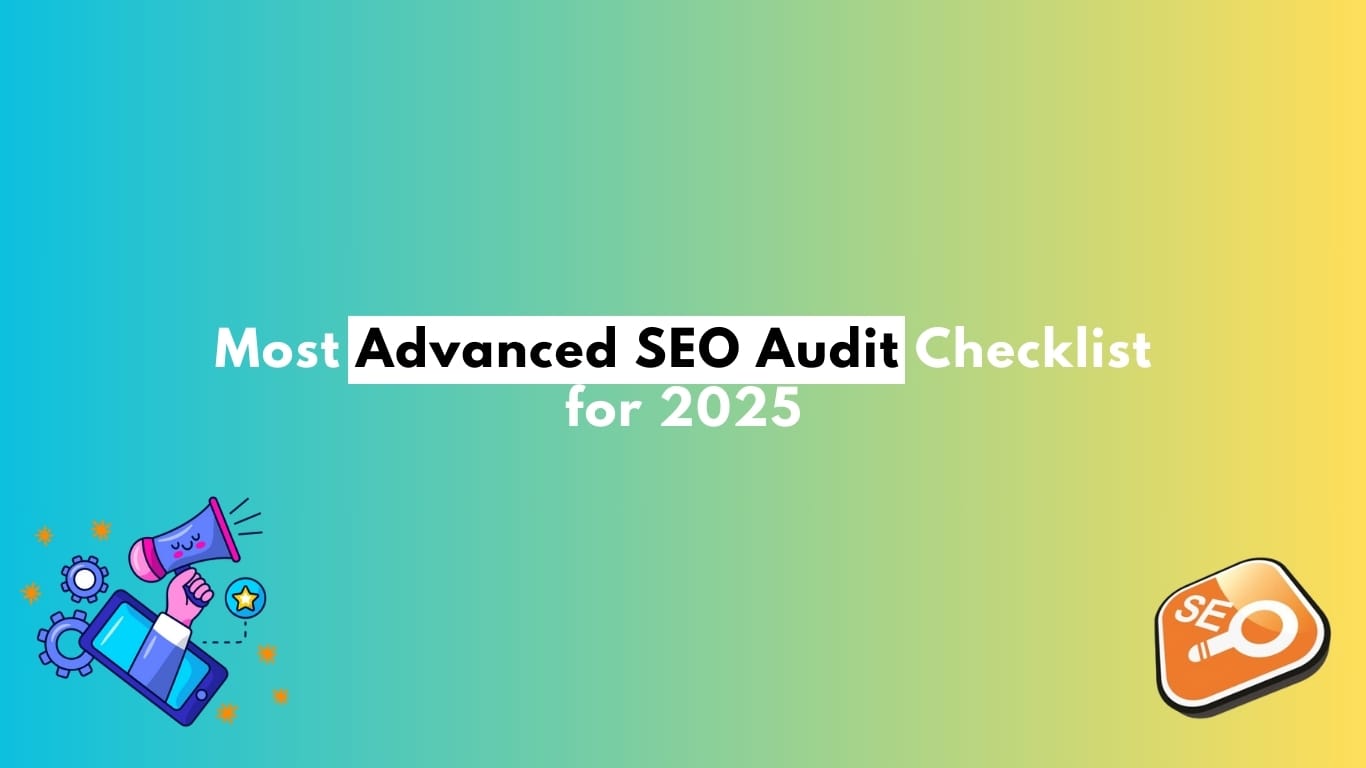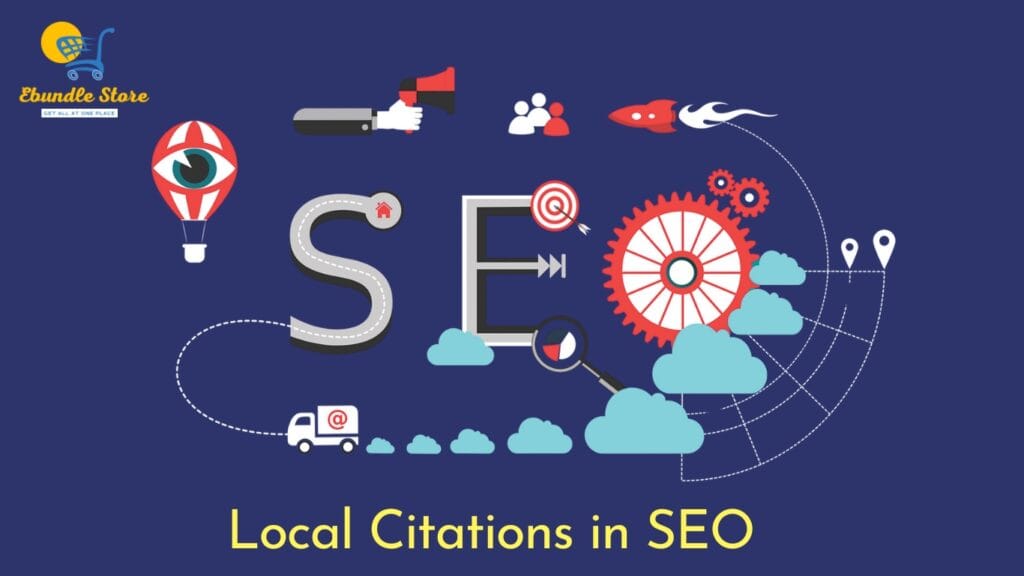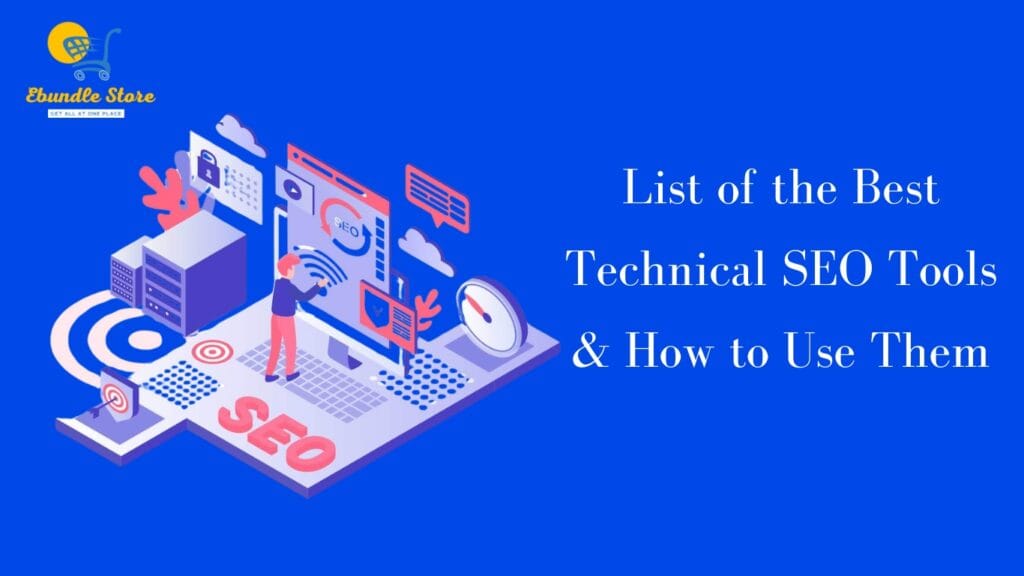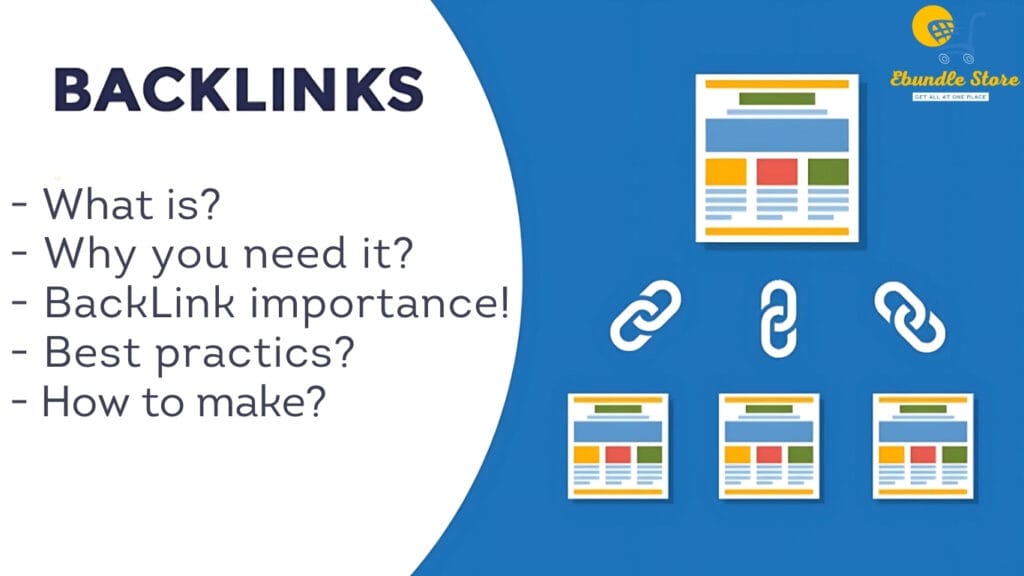As we step into 2025, the digital landscape continues to evolve, making it essential for businesses to stay ahead of the curve with their SEO strategies. An SEO audit is a comprehensive evaluation of your website’s search engine optimization performance. It helps identify strengths, weaknesses, and opportunities for improvement to enhance your site’s visibility in search engine results pages (SERPs). Here’s an advanced SEO audit checklist to ensure your website is optimized for success.
What is an SEO Audit?
An SEO audit involves a thorough examination of various elements that contribute to a website's performance in search engines. This includes analyzing technical aspects, on-page elements, content quality, and off-page factors. The goal is to uncover issues affecting your site's visibility and provide actionable recommendations for optimization.
Types Of SEO Audit
- Technical SEO Audit
- Crawlability: Ensure search engines can crawl your site without issues. Use tools like Google Search Console to identify crawl errors.
- Site Speed: Check loading times using tools like Google PageSpeed Insights. Optimize images and leverage browser caching.
- Mobile Optimization: Assess mobile-friendliness with Google’s Mobile-Friendly Test. Ensure responsive design and usability on mobile devices.
- Secure Connection: Verify that your site uses HTTPS and check the validity of your SSL certificate.
- On-Page SEO Audit
- Title Tags and Meta Descriptions: Review all title tags and meta descriptions for uniqueness and relevance to target keywords.
- Header Tags: Ensure proper use of H1, H2, and H3 tags to structure content effectively.
- Content Quality: Analyze the quality, relevance, and uniqueness of your content. Identify opportunities for new content creation or optimization.
- Keyword Usage: Evaluate keyword targeting in content, ensuring they align with user intent.
- Off-Page SEO Audit
- Backlink Profile Analysis: Use tools like Ahrefs or Moz to assess the quality and quantity of backlinks pointing to your site.
- Social Signals: Evaluate social media engagement and its integration with your website.
- Competitor Analysis: Analyze competitors’ backlink strategies and identify opportunities for improvement.
- Content Audit
- Duplicate Content Check: Identify any duplicate content issues using tools like Copyscape or Siteliner.
- Content Relevance: Ensure that existing content meets the needs of your target audience and aligns with current trends.
- Content Gaps: Identify topics or keywords that are underrepresented on your site compared to competitors.
- Local SEO Audit (if applicable)
- Google My Business Optimization: Ensure your GMB profile is complete and accurate.
- Local Citations: Check consistency of NAP (Name, Address, Phone) information across local directories.
Advanced SEO Audit Checklist for 2025
1. Define Goals and Objectives
- Clearly outline what you want to achieve with your SEO audit (e.g., improving organic rankings, increasing traffic).
2. Use Reliable SEO Tools
- Utilize tools like Google Analytics, Google Search Console, SEMrush, or Ahrefs to gather data about your website’s performance.
3. Check Website Accessibility and Crawlability
- Ensure search engines can easily crawl and index your website. Check for broken links or crawl errors using Google Search Console.
4. Evaluate On-Page SEO Elements
- Review title tags, meta descriptions, header tags, and URL structures for each page. Ensure they are unique and descriptive.
5. Assess Technical SEO
- Examine site speed, mobile-friendliness, and secure HTTPS connections. Use tools like Google PageSpeed Insights to identify areas for improvement.
6. Keyword Analysis
- Evaluate your keyword strategy to identify new opportunities. Ensure that your content is high-quality and relevant to target keywords.
7. Backlink Profile Analysis
- Analyze your backlink profile to identify toxic backlinks that may harm your rankings. Use tools like Ahrefs or Moz for this analysis.
8. Local SEO Optimization
- If applicable, optimize your local presence by ensuring accurate information on Google My Business and managing local citations effectively.
9. Competitor Analysis
- Conduct a thorough analysis of competitors’ strategies to identify strengths and weaknesses in their approach compared to yours.
10. Monitor Site Analytics
- Regularly review key performance indicators (KPIs) such as organic traffic, bounce rates, and conversion rates to assess overall performance.
Why Conduct an SEO Audit?
Performing an SEO audit is crucial for several reasons:
- Identify Issues: Uncover technical, on-page, and off-page issues affecting performance.
- Improve Rankings: Address identified issues to enhance visibility in SERPs.
- Stay Updated with Algorithm Changes: Regular audits help you adapt to changes in search engine algorithms.
- Optimize User Experience: Improve site usability based on audit findings.
- Maximize ROI: Ensure effective use of resources allocated to SEO efforts.
Conclusion
An advanced SEO audit is essential for maintaining optimal performance in today’s competitive digital landscape. By following this checklist for 2025, you can identify areas for improvement and implement effective strategies to enhance your website's visibility. Regular audits not only help you stay compliant with search engine guidelines but also ensure that you are providing a positive user experience.
If you need assistance with conducting a comprehensive SEO audit or optimizing your website for better performance, don’t hesitate to reach out! Let us help you achieve remarkable results in the digital space. Let us help you achieve remarkable results in the ever-evolving world of digital marketing.
FAQs About SEO Audits
It’s recommended to conduct an SEO audit at least once every six months or whenever significant changes are made to your website.
Yes, many aspects of an SEO audit can be conducted using various tools available online; however, hiring an experienced agency can provide deeper insights.
Popular tools include Google Analytics, Google Search Console, SEMrush, Ahrefs, Moz, Screaming Frog, and GTmetrix.















